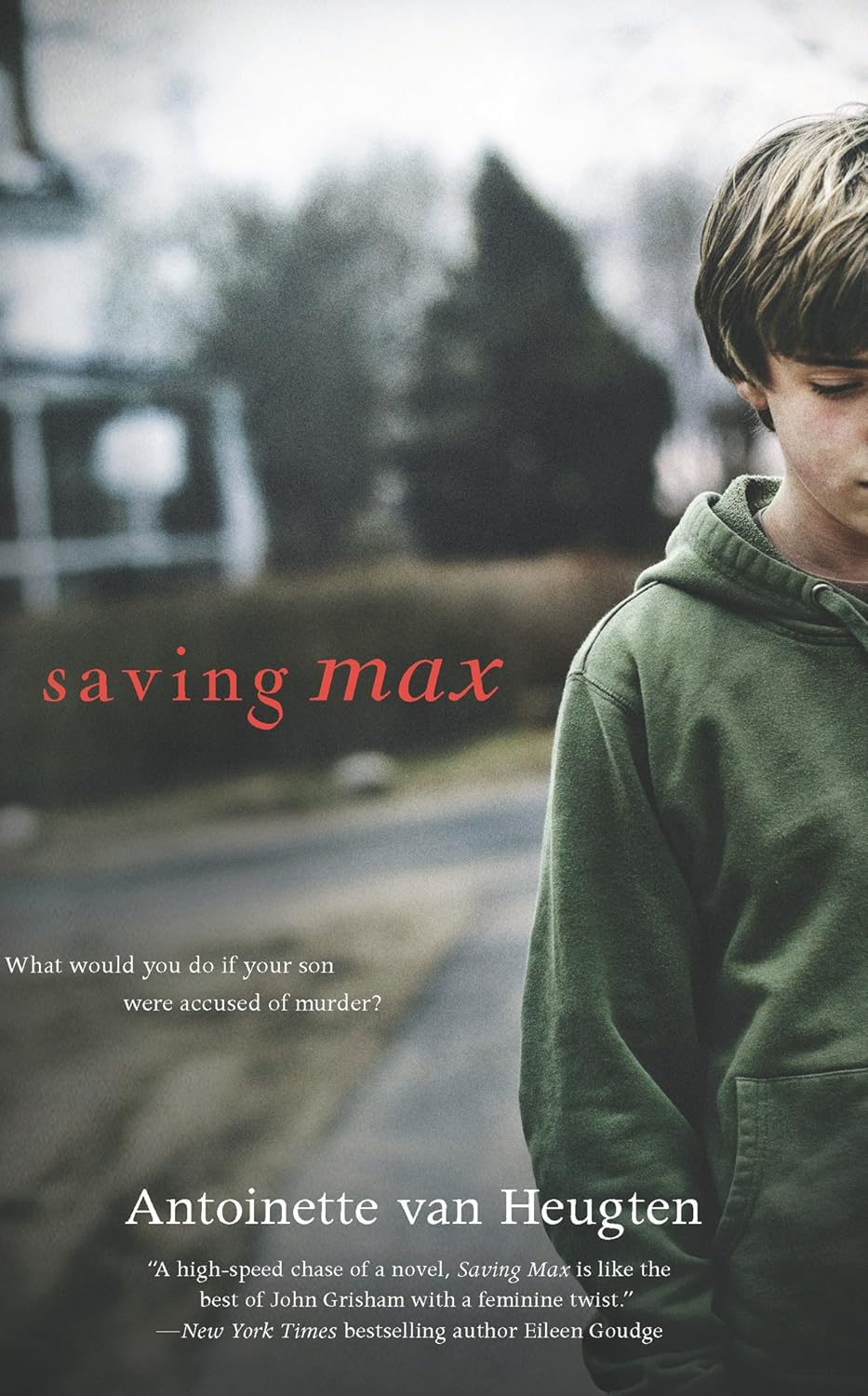Book Summary
Saving Max is a heart-pounding legal thriller that follows Danielle Parkman, a high-powered attorney whose world shatters when her autistic teenage son, Max, is accused of murder at a psychiatric facility. After Max’s violent outbursts and drug use spiral out of control, Danielle checks him into the renowned Maitland clinic, only to discover him unconscious beside a brutally stabbed patient. With damning evidence against Max and the justice system eager to convict, Danielle risks everything—her career, her freedom, and her sanity—to prove his innocence. The novel masterfully blends courtroom drama with psychological suspense, keeping readers guessing until the final revelation.
Van Heugten’s debut novel grips with its raw portrayal of a mother’s desperation and the flaws in psychiatric and legal systems. While some plot twists stretch believability (like Danielle’s rapid romantic entanglement with her lawyer), the relentless pace and emotional depth compensate. The story’s strength lies in its unflinching look at how easily institutions can fail vulnerable individuals—especially those like Max, whose Asperger’s makes him a target for misdiagnosis and prejudice.
Key Themes
The novel’s core theme is unconditional maternal love. Danielle’s refusal to accept Max’s diagnosis of schizoaffective disorder—even when faced with horrific evidence—mirrors real-world struggles of parents advocating for neurodivergent children. Her journey challenges the notion of “dangerous” mental illness, asking whether Max’s aggression stems from his condition or the experimental drugs forced on him at Maitland.
Another critical theme is institutional betrayal. The psychiatric facility’s negligence (disabled cameras, missing murder weapons) and Dr. Fastow’s unethical drug trials expose systemic failures. Parallels to Munchausen syndrome by proxy emerge through Marianne, a fellow mother whose chilling secret reframes the crime. Van Heugten, a former trial lawyer, uses legal realism to critique how easily truth is buried under bureaucracy.
What Makes It Unique
Unlike typical legal thrillers, Saving Max roots its drama in authentic neurodiversity representation. Max’s Asperger’s is neither romanticized nor vilified; his literal thinking and tech savviness become plot pivots. The courtroom scenes gain depth from Danielle’s dual role as lawyer and mother, blurring professional and emotional boundaries.
The novel also stands out for its villain reveal. Marianne’s diaries—detailing years of child abuse—flip the narrative abruptly, transforming a whodunit into a horror-tinged exploration of manipulation. Some critics found this twist jarring, but it underscores van Heugten’s boldness in tackling taboo topics like medical gaslighting.
Reader Reactions
Reviews praise the book’s “unputdownable” pace and emotional resonance. One reader noted, As a parent of a child with autism, I felt every ounce of Danielle’s fear and fury.
Others highlighted the John Grisham-esque courtroom drama
but critiqued secondary characters (like investigator Doaks) as underdeveloped.
Controversy arose around psychiatric depictions. While some called it dangerously misleading,
others argued it spotlighted real abuses in mental healthcare. The polarized responses reflect the book’s provocative stance—it’s a thriller first, but its themes linger uncomfortably.
About the Author
Antoinette van Heugten is a former international trial lawyer whose career spanned Scandinavia, Germany, and her native Texas. Her legal expertise grounds Saving Max in authentic procedural detail, from evidence tampering to competency hearings. The novel’s emotional core draws from her life as a mother of two autistic children, lending Max’s portrayal rare authenticity.
Her subsequent novels, like The Tulip Eaters, continue exploring maternal resilience amid trauma. Van Heugten’s blend of legal precision and psychological insight has earned her comparisons to Jodi Picoult—though her darker, more thriller-driven style carves a distinct niche.
Memorable Quotes
Shoulder to shoulder, the five of them march down the aisle.
His scowl is that of an adult, not a child.
